A bit of a grading update…
I revised the Grade Book so that it more accurately reflects the grades for the essay revisions etc. So you’ll now find columns that say Unit 1 essay, Unit 2 essay, Unit 3 project, Final Portfolio & Reflection, Final Course Grade, and Participation (which is where I wrapped all of the participation points together). I also left Comments in the FP&R and Final Course Grade areas.

Don’t forget!!! The Final Portfolio (revisions of Unit 1 – Portrait of a Word, and Unit 2 – 1000-word article, and Final Reflection) is due by midnight tonight! Let me know if you’re having trouble — I’ve already uploaded some things for people who had to email me their work for various reasons.
And then go have a wonderful summer!
So that’s it!!!

We’re all done. Couple of things:
The Final Portfolio is due EOD Tuesday May 25. It consists of revisions for Portrait of a Word and the 1000-word article, plus the Final Reflection. If you can put them all in a single doc, that would be great. If you can’t, that’s okay, too. Just make yourself a folder inside the Final Portfolio folder in the Google Drive.
Be sure your Artist’s Statement is posted. It’s part of the Unit 3 assignment, so it’s worth points.
Leave something for incoming students on the Padlet. It can be funny or serious, images or links to videos or websites. And you don’t have to put your name in the title if you don’t want to. But keep it clean!
I’m still around, so send me a text or email if you need something.

Good luck to everybody!
Post class 5/11
Just to be clear. The final portfolio consists of:
- Revision of Unit 1 essay – Portrait of a Word
- Revision of Unit 2 essay – Article
- Final Reflection Essay
Put them all in one document, and upload that document into the Final Portfolio folder on the Google Drive.
Post class 5/6
We’re onto the Final Portfolio and Reflection. To get started, look closely at the assignment in the Course Work tab on the main menu, look over your drafts, make note of my comments and those of your classmates, review the “How to Write a Revision Plan” handout, and draft a revision letter so we can have something to look at when we meet next week. The revision letter must be very specific! Look at the How to Write a Revision Plan file below for help.
Remember: we’ll start class for the next two weeks on time, then I’ll meet with people in a break-out room who have appointments while everybody else works on the daily activity. Be sure to make an appointment on the Google Drive –> Conferences sheet.
NOTE: An optional shi**y first draft of the Reflection will be due any time before Thursday, May 21 if you would like me to look at it and give you feedback on it.
Homework for Tuesday May 11:
Write a Revision Plan post of at least 500 words for OpenLab where you address these things for each essay (Unit 1 and Unit 2):
- What were the most frequent or important comments you got?
- What specific things do you feel you need to revision? This should be more than a list. Each thing should have its own paragraph about what you’re going to do.
- What questions do you have for our one-on-one conference?
Title: “revision plan – your name”
Category: revision plan
Helpful stuff:
Slide show about how to revise: https://openlab.citytech.cuny.edu/fyw-pedagogy/files/2021/01/Re-Vision-2.pdf
Post class 5/4
Nice work! I enjoyed seeing people’s thoughtful, interesting pieces… and laughing at a few of them. Always fun.
So now you need to write and upload your Artist’s Statement. Here are the particulars…
for Thursday May 6: Post your Artist Statement on OpenLab. Here’s the assignment:

Write an Artist’s Statement…
…to go along with your project. Do this after you’ve completed the whole project. Think of it both as a place to reflect on what happened and what you learned during the process and as a place to make visible what is otherwise invisible: the artist’s process of choosing and creating. It should be about 750-1000 words (ballpark). There are three sections – here are the things you need to address in each one. Use “I” since you’ll be telling me what you did and why:
- Before you started:
- Describe what your purpose and goals were when you started – what you wanted your audience to know or do with the project and why.
- Explain why you chose the genre/form you did (video, photo essay, mix, etc.). What was it about that genre that you thought would help you best tell your story?
- Talk about what problems you thought you might run into, what worries you had doing something like this, or anything else you were thinking about when you were getting started.
- Getting it done:
- Take us through the process of composing this project – the good, the bad, the re-thinking, the awful…
- Describe the choices you made and why you made them. Were there technical reasons? Did you keep coming up with better ideas? Did you re-think your goal? Be specific and point to the elements you included and chose to exclude, how you put them together, etc.
- Now that it’s done:
- Talk about what you think is good about the final product, AND what you think you might have done better… and why.
- Also talk about what you would consider the perfect or specific conditions where people would experience your product.
*NOTE: This should be a fluid narrative that takes us chronologically through the process of making your Unit 3 project. Don’t simply answer the bullet points.
Post it to OpenLab. DUE THUR MAY 6
- Title “Artist Statement – your name”
- Category “Artist Statement”
Post class 4/29
To recap the assignment schedule:
for Tuesday May 4: project must be uploaded to the Google Drive by the start of class, or you can let me know what the link is via Slack if you have trouble. NO LATE PROJECTS.
IF YOU’RE DOING A PODCAST AND HAVE A COVER… go to the Google Drive, click on Unit 3 folder. You’ll see a folder labeled mp3’s, and it’s a good idea to upload your audio file here first. Then do New Google Slide. Then click on Slide –> Apply Layout –> Blank slide. Then insert your podcast cover image. Then insert Audio (if you uploaded it already, you’ll see it in the box; otherwise, you may have to back out and do it now). Title it and you’re good!
for Thursday May 6: Post your Artist Statement on OpenLab. Here’s the assignment:

Write an Artist’s Statement…
…to go along with your project. Do this after you’ve completed the whole project. Think of it both as a place to reflect on what happened and what you learned during the process and as a place to make visible what is otherwise invisible: the artist’s process of choosing and creating. It should be about 750-1000 words (ballpark). There are three sections – here are the things you need to address in each one. Use “I” since you’ll be telling me what you did and why:
- Before you started:
- Describe what your purpose and goals were when you started – what you wanted your audience to know or do with the project and why.
- Explain why you chose the genre/form you did (video, photo essay, mix, etc.). What was it about that genre that you thought would help you best tell your story?
- Talk about what problems you thought you might run into, what worries you had doing something like this, or anything else you were thinking about when you were getting started.
- Getting it done:
- Take us through the process of composing this project – the good, the bad, the re-thinking, the awful…
- Describe the choices you made and why you made them. Were there technical reasons? Did you keep coming up with better ideas? Did you re-think your goal? Be specific and point to the elements you included and chose to exclude, how you put them together, etc.
- Now that it’s done:
- Talk about what you think is good about the final product, AND what you think you might have done better… and why.
- Also talk about what you would consider the perfect or specific conditions where people would experience your product.
*NOTE: This should be a fluid narrative that takes us chronologically through the process of making your Unit 3 project. Don’t simply answer the bullet points.
Post it to OpenLab. DUE THUR MAY 6
- Title “Artist Statement – your name”
- Category “Artist Statement”
Post class 4/27

Not much to say. Just keep on working!
Here’s the link to that site about visual design. It’s really got some good tips and ideas that I’d suggest you look over once you get something more or less drafted: https://www.visualmess.com/
Second, here’s the Work-in-Progress Padlet if you’d like to keep posting things for me or each other. You can also DM each other and me using Slack to let us know you’ve got something to look at.
And here is the rubric I’ve been creating for Unit 3 (it’s also in the Drive as “Unit 3 assessment rubric”). Please feel free to take a look, leave me messages and suggestions and questions underneath the table — I really do want your input!
No homework for Thursday.
Post class 4/22
I’m excited! There are some great things shaping up. I know you’re still (possibly) going “how am I going to put these things together?!” but trust the process and lean on each other. Don’t forget — you can always DM me and each other on Slack. And if you fail… just start over!
Homework for 4/27:
On Padlet: Post something to show us how you’re progressing: a paragraph, a screen shot, a script for a podcast… anything. And obviously it doesn’t have to be anywhere near finished. You can also leave a plea for help! Here’s the link
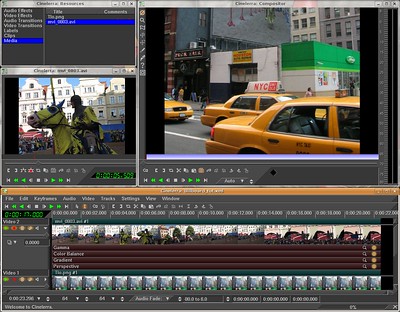
Post class 4/20
Okay, I know… trying to pin down what “genre” you’re working in is hard! But that’s fine. Be creative. Try something you haven’t done before. Give each other some help and feedback. Ask prof blain questions. And change up things if you’re not happy with what you’re doing.
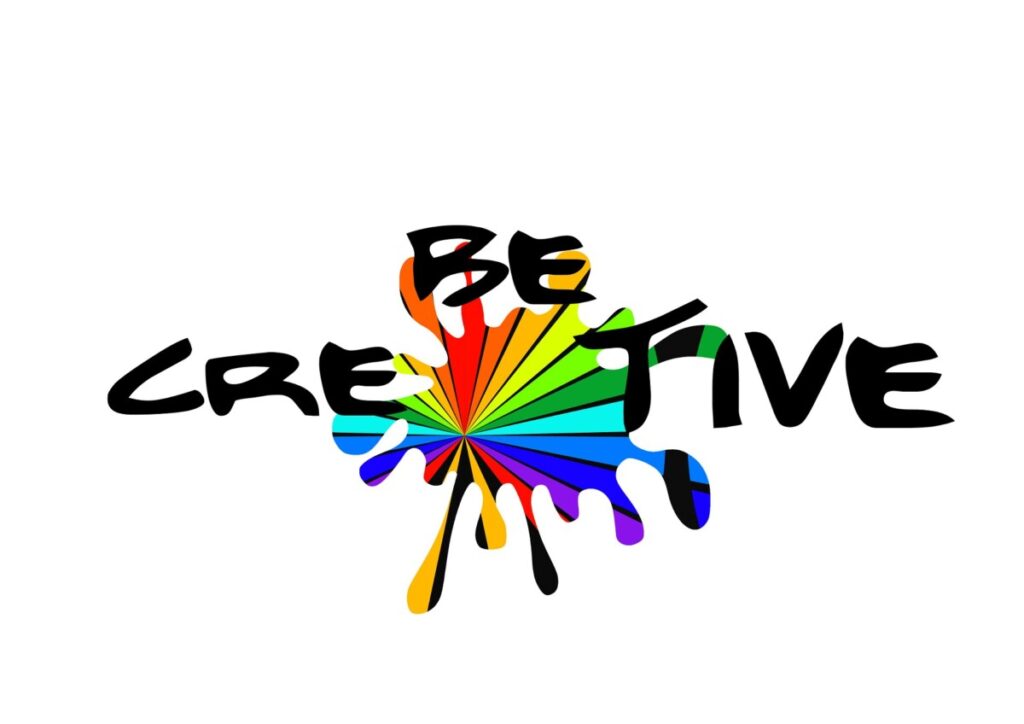
There’s no homework for Thursday, but next Tuesday, you’ll need to show up some “evidence” of what you’re doing — rough drafts, scripts, a bit of video or audio… So be sure to get started now, even if you do indeed change up things!
Don’t forget there are tutorials for video and audio editing in the Class Resources area (iMovie, ShotCut and DaVinci Resolve for video; Audacity and Garage Band for audio/podcasts).
Post class 4/15
So many possibilities!!!! Here’s the link to the Padlet with all of the genres/ideas if you want to keep working on yours or just see what other people have found that you can look at, too. https://padlet.com/dblain1/8fi116jucyvg3xqk
Here’s the homework assignment for Tuesday 4/20:

On OpenLab: Write a post that nails down a little more specifically what you want to do for this project. To do that, answer these questions:
- What story or specific thing you’ve noticed over the past year do you want to share with everybody? Remember: specific to you!
- What technical (genre) examples have given you some good ideas about how you want your project to look/sound? Pick two, add the links or an image or even embed a video or audio file, and explain what you see or hear in them that you think will help you and why. The examples can even be from different genres but overlap in terms of what you’re thinking about doing: a podcast that you can turn into a video essay; a photo essay that you can post using Instagram/social media; a comic that’s mostly a set of single illustration-type panels rather than a typical strip.
Get creative!!!! It’s your chance to play and to share. And if it’s not perfect, who cares? The stories and perspectives themselves will be perfect. And I’ll go through the tech stuff next week, so if you’re curious about Audacity or ShotCut, we’ll do a whole tutorial about it (sorry about the Mac and iOS!).
Title: project 1 – your name
Genre: project 1
Post class 4/13
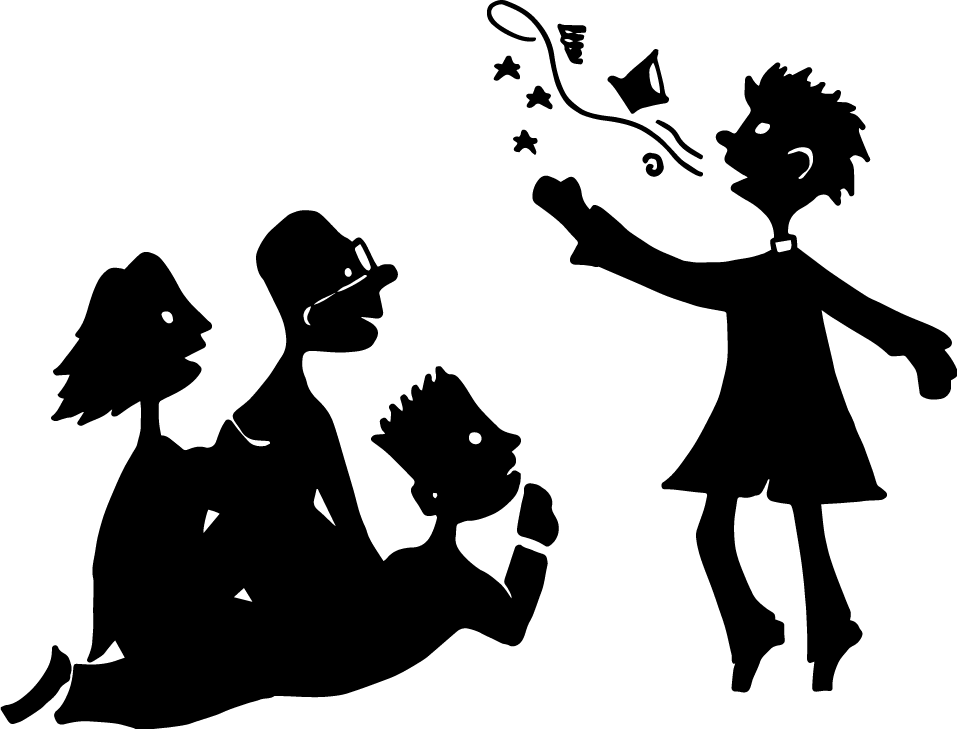
I hope this helped with getting some ideas nailed down. Remember: it’s all about you — me and my bicycle (narrative, chronological), my granddaughter and the BLM posters (thematic, non-chronological), my student whose grandmother was cranky enough to make him learn the food of his country and then got happy when he did it well and then got cranky again because the family wanted him to cook (narrative, chronological)… Here’s the slide show with explanations and links, and after that are a bunch of links to examples of different kinds of multimodal examples:
Homework for 4/15
On OpenLab: Write a mini-proposal for your project. Don’t worry – this is still a work-in-progress, but you need to start somewhere! Please answer all of the following questions:
- The prompt for this unit asks you to answer one or both of the following questions: “How has the past year challenged or changed you?” or “What have you learned from the hardships of the past year that you would like to share with others?” At this point, what do you intend to write about in this unit? Draw on the things we did in class on Thursday (the Time Before Now and The Long Now lists) and today, think about something that kind of jumped out at you, as a way to get narrowed down.
- The assignment also asks you to be specific — what makes this all yours?
- What type of project/genre has caught your interest? A podcast? A video essay with interviews? A series of infographics? A comic book? A photo essay? A mash-up? Something else?
Title: Mini-proposal – your name.
Category: Mini-proposal
We’ll be brainstorming all of these in class on Thursday.
Post class 4/8
I hope everybody’s getting some ideas about what you might want to create a multimodal text/project about. And again, don’t worry about the genre or tech… we’ll deal with all of that next week.
For right now…
First, continue to look at the Article Drafts folder and feedback, and write your Revision Plan post on Open Lab. Revisions aren’t due until the end of the term, but feel free to play around with it now if you’d like.
Second, here’s the Homework for Tuesday 4/13:
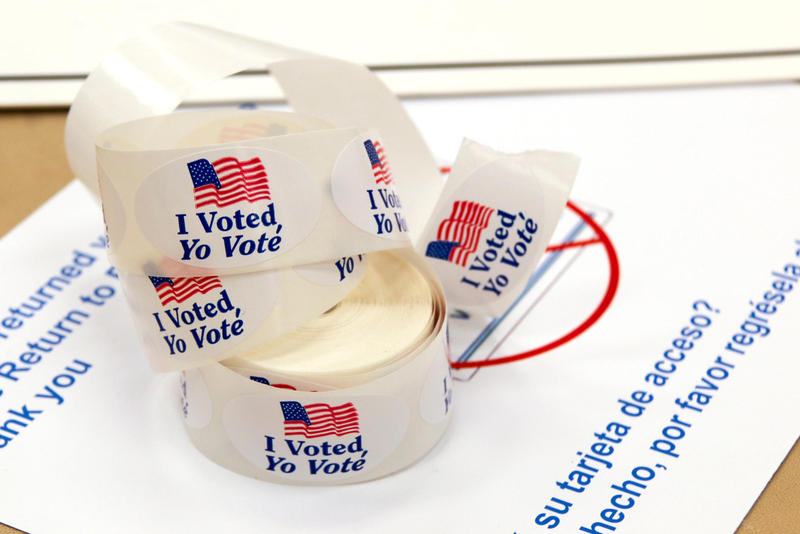
On OpenLab: [this will only make sense if you’re in class!!!]
- Post your list of “Time Before Now” scenes: the scenes or moments when things began to change OR just before they did.
- Post your “The Long Now” responses (the Long Now being from March 2020 to now).
- What I’ll always remember about this year is…
- The truth is, I spent most of this year…
- Some images that will stay with me from this year are…
- Some songs that mattered most to me during this year are…
- Some things I’ve celebrated in spite of the hard times have been…
- Quick takes from the news:
- Things that have had an impact on racism/racial justice
- Acts of kindness
- Is it okay to laugh during times like these? Why or why not?
- Brainstorm some ideas of your own about specific thing(s) you’d like to talk about in this project – the aspect that makes bigger ideas yours.
Title: Brainstorm – your name
Category: Brainstorm
And here’s the Padlet we did earlier this term about what you want the world to know about this year.
Post class 4/6

There are some really good articles shaping up! I hope this way of doing workshop was helpful. The one thing to remember as you do revisions is that this isn’t a traditional research essay, so you can make it sound more personal, and make those paragraphs shorter! But very impressive things so far.
Homework for 4/8: (a few things)
On OpenLab:
- Talk about what you did today. What feedback did you get from other people? Was it helpful? What did you see in other people’s articles? Anything you can take away from it that you might be able to use in your own revision?
- If you want to leave comments that you didn’t quite finish — or take a look at another article because you’re interested in it — please do so! Everybody needs all the input we can get even if it’s just a short comment.
- Craft an informal revision plan: what do you want to change, add, delete, etc.? Why? Take a look at the image on the Announcements page about how to structure the article. Also think about how to break up long paragraphs into more reader-friendly chunks now that you have all the information you want. And take a quick look at your conclusion — make it as great and engaging as your opening!
- If you want to make changes now, feel free. As I said in class, I’m sure I won’t get back to these until the weekend.
Title: Article revision – your name
Category: Article revision
If you can’t find your draft of the article, go here (I made a general Article Drafts folder).
Coming back from Spring Break
I know… it’s hard. But we’re workshopping your articles with a partner and starting the Unit 3 Project (which I’m betting you’ll enjoy!). The new Weekly Schedule is up, and Unit 3 information is live. See you on Tuesday!
Post-class 3/25
Nut grafs are us!!!
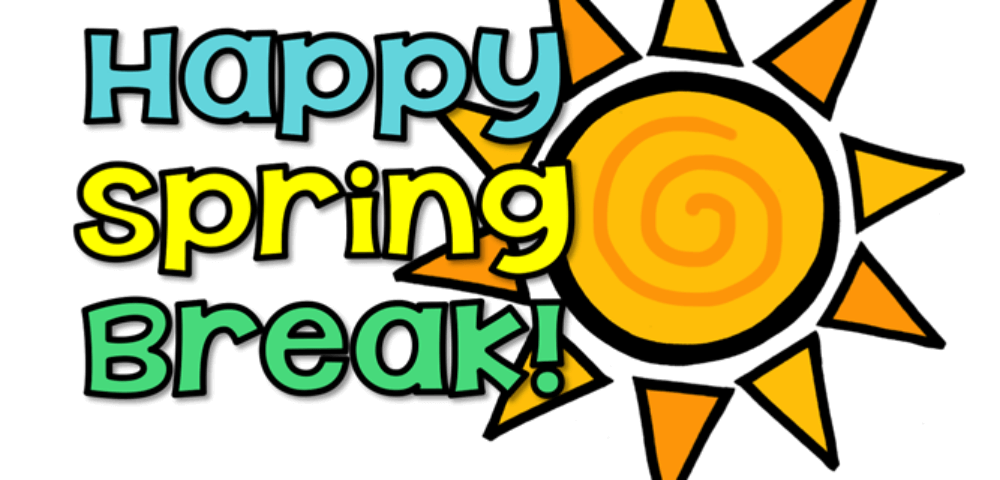
About the short pieces… you can post one in the Google Drive by the time we get back from Spring Break. The ones we saw (Mariam, Austin) were nice examples.
I also put the whole slide show/pdf here (scroll down to Handouts) so you can see what we’ve been talking about this week.
Homework is below.
Have a great, safe Spring Break!
Homework for April 6:
On Google Drive: Upload your longer articles into the Folder with your name in the Unit 2 – All Work folder. Remember that it must meet these criteria:
- 1000 words
- combination of personal (you and/or other people) and supporting research
- at least two outside sources used/quoted
- images (charts, graphs, photos, line art…)
Post-class 3/23
Here’s the article with all the things we looked at today: https://www.nytimes.com/2020/02/05/learning/explaining-why-a-topic-matters-the-times-personal-health-column.html

This is Canva: canva.com Remember that it’s free, use the templates and just swipe away the things you don’t want, watch out for the little Pro notice on many of the images, Upload anything you want. AND you can download your piece as a jpg, pdf, png, MP4…
And here’s the template for the long article:

Homework for 3/25:
Wherever works: Post your short pieces wherever is best (Google Drive, Open Lab [if you want to use Open Lab, use the Category “Unit 2 short pieces”], even Slack!). We’ll be sharing them on 3/35.
Be prepared to write a practice nut graf for your longer article.
Post-class 3/18

Today, we looked a little bit about how to analyze visual things like photographs and video. If you’re going to use some of these things in your longer 1000-word piece (due April 6) or even in your short piece (Instagram story, 50-word mini-news piece), it’s good to look at how they actually work on us as viewers. Everything is manipulated — especially our emotions as we view the world around us.
Now go work on your short pieces (due 3/25) and start thinking more about your longer article (audience, etc.).
Homework for 3/23:
On Google Drive: If one of your texts for the short piece you’re doing was visual (image or video), go back and revise your Reverse Analysis based on what we did in class.
On OpenLab: Post a short summary (150-words) of two of your research sources. The summary must include:
- bibliographic information
- 2-3 sentence summary of the source (main idea and supporting ideas)
- how useful you think it will be and why
Title: “Sources – you name”
Category: Sources
Here’s a whiteboard that I created in the afternoon class. It should answer some more questions…
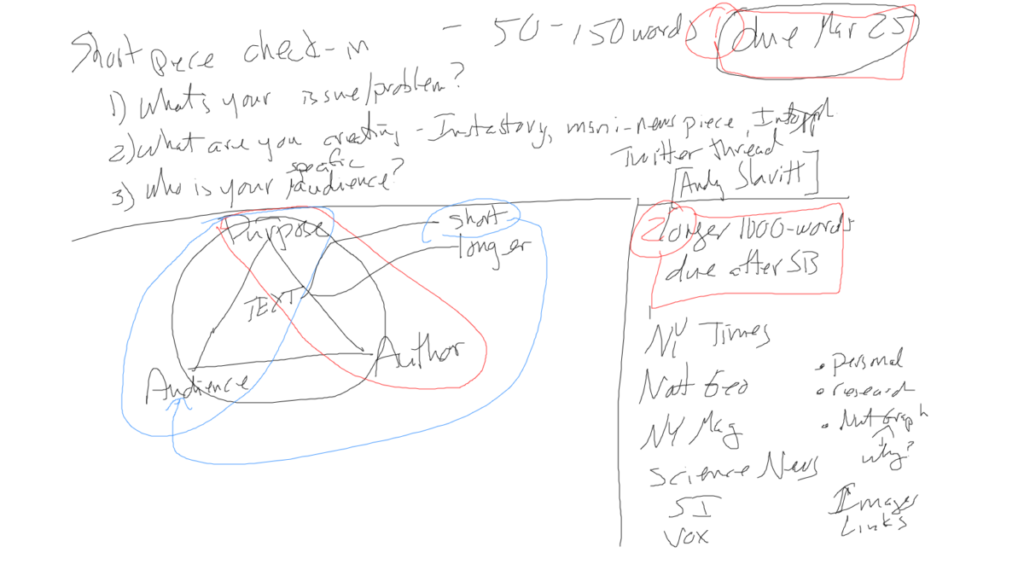
Post-class 3/16
Here’s the link to the Padlet from today. https://padlet.com/dblain1/g5djpv1b1rf3pmqz
And this is the link to the library resource for finding information: https://libguides.citytech.cuny.edu/eng1121/articles
Also, this is the video about Ruth Bader Ginsberg if you’re interested: https://www.cnn.com/videos/politics/2020/09/18/ruth-bader-ginsburg-most-memorable-speeches-ak-orig.cnn/video/playlists/ruth-bader-ginsburg-rbg/
Homework for Thur 3/18
On Google Drive: Post your analyses of the three texts you’re looking at as models for your short piece. Do each of the following for one text from the three categories of social media, news media, and alternative media:
Know your publication:
- What kinds of articles/ stories/ media (and ads and videos for that matter) are on that site or in that publication?
- What does that tell you about who they think their audience is? How do you draw that conclusion?
- How long are the pieces usually? (pages, words, minutes)?
- What is the tone, usually? (funny, serious, casual)
- What kind of diction is usually used? (casual, formal, academic, etc.)
- How do they usually use evidence/ support (such as data, quotations, interviews, etc)?
- What can you tell us about their visual presentation? Is it all black and white text? Video with lots of graphics?
Mentor Text analysis:
- Main Point: what’s the main point of the piece? Does the author explicitly tell you what the main point is, and if so, where?
- Details: List a couple of the most memorable moments and say why they were so memorable.
- Language: Talk about the language in the piece (non-standard, standard written English, slang, poetic, straightforward, multilingual) and why it was appropriate for this piece.
- Techniques: How did the author grab the audience’s attention? What techniques did they use to keep the audience going to the end?
Reverse Outline worksheet:
- Divide the piece into logical sections: written pieces are in paragraphs, video is by scene or cut, and everything has a beginning-middle-end structure.
- Then use the Reverse Outline template to help you see the structure. You’ll use this structure as a guide to create your own examples
It’s a whole new thing for Unit 2… (homework is farther down, so keep scrolling)
Well, not exactly “whole” new. Just some tweaking and letting you work with alternative genres (like Instagram, poetry, videos) as well as writing a longer “think piece” that combines the personal with research.
Here’s the new Unit 2 for the rest of this unit:
We’re still talking about issues that matter to you… and how you change minds, educate people, have an impact on your community. But we’re going to approach it a little differently.
Keep your issue/slant.
- Pick three examples of people are “composing” texts about that issue/topic.
- Social media, including YouTube
- News media/articles, like CNN or Washington Post or New York Times
- Anything else that’s NOT social media or news article (personal essay, song, comic, movie, poem, advertisements, graphic novel, political cartoon)
- Analyse them:
- Know Your Publication questions.
- Mentor Text analysis.
- Reverse Outline.
- Do some research on your topic/issue, whatever you think will help you get your point across.
- Create a short piece/example of at least one of your three examples. For example, if you’re talking about teen depression, create an Instagram story for teens.
- Write an approximately 1000 word combination personal/research piece for a specific audience (use one of the Perusall mentor texts as a structural aide). For example, if you’re talking about teen depression, write a piece for the adults who read New York Magazine to tell them why they should be paying attention.
Here are the tools you’ll be using:
Know your publication:
- What kinds of articles/ stories/ media (and ads and videos for that matter) are on that site or in that publication?
- What does that tell you about who they think their audience is? How do you draw that conclusion?
- How long are the pieces usually? (pages, words, minutes)?
- What is the tone, usually? (funny, serious, casual)
- What kind of diction is usually used? (casual, formal, academic, etc.)
- How do they usually use evidence/ support (such as data, quotations, interviews, etc)?
- What can you tell us about their visual presentation? Is it all black and white text? Video with lots of graphics?
Mentor Text analysis:
- Main Point: what’s the main point of the piece? Does the author explicitly tell you what the main point is, and if so, where?
- Details: List a couple of the most memorable moments and say why they were so memorable.
- Language: Talk about the language in the piece (non-standard, standard written English, slang, poetic, straightforward, multilingual) and why it was appropriate for this piece.
- Techniques: How did the author grab the audience’s attention? What techniques did they use to keep the audience going to the end?
Reverse Outline worksheet:
- Divide the piece into logical sections: written pieces are in paragraphs, video is by scene or cut, and everything has a beginning-middle-end structure.
- Then use the worksheet below to help you see the structure. You’ll use this structure as a guide to create your own examples.
Workflow and Schedule
3/11 – Begin analysis of three texts.
HW (due 3/18): Upload/work on your analyses using the Google Folder -> Unit -Your name
3/16 – Conducting research
HW: Analysis of three texts
3/18 – Checking in on your research and moving forward
HW: On OpenLab, post a short summary of at least one of your research sources: (1-2 sentence summary, how useful you think it will be). Title “Sources – your name” Category Sources.
3/23 – Writing the short piece
HW: short piece of one of your texts
3/25 – Share the short pieces, more specifics about the 1000 word piece
HW (due Apr 5 after Spring Break): draft of longer piece
Homework for 3/18:
- Finish and post your Proposal to OpenLab.
- Go find three “texts” that talk about your issue. Texts should be 1) something from social media, 2) something from news media, and 3) something from a genre that’s not social media or news media. For example: teen depression is your topic, you find an Instagram story someone has written, you find a news analysis on CNN, and you find somebody’s poem they wrote about it.
- For each one of these texts: 1) do a Publication analysis, 2) do a Mentor Text analysis, and 3) do a Reverse Outline. For example: Instagram story about teen depression — 1) Publication analysis of Instagram as a whole, 2) mentor text analysis of this particular Instagram story, 3) reverse outline of this particular Instagram story.
- Post/publish these on the Google Drive in folder Unit 2 – all work –> your folder.
Tuesday March 9 post-class comments
There are a lot of interesting ideas for your articles, many of them very big right now. If you want to look at the Padlet to see what other people left you, here’s the link.
If you’re having trouble narrowing things down, do the 5-minute freewrite exercise where you put your fingers on the keyboard and type “what I really want to write about is…” and keep going! Then put it aside. In an hour or so, go back and see if there’s anything that makes sense in all that mess (and it will be a mess!). Highlight those things, then do another 5-minute… and repeat until you finally get an “ah-ha!” moment where you see that you’ve got a slant/focus. Trust me: it works!
The homework is below. But remember: I need to sign off on it before you go any farther (mostly so you won’t be going down some dead-end street or wandering into a dark forest).

Homework for 3/11:
On OpenLab: Post a short proposal for your article. This should be about 300 words, and it needs to include these things: NOTE: you must post a proposal or you won’t be able to continue working on your article.
- Your issue and what questions you have about it (who, what, when, where, why, how).
- Why you’re the perfect person to write about it — your connection to the issue. Why is it important to you and the people you know?
- Who you’re targeting as your audience. This is where your slant comes into play — the audience determines both what you’re going to include and how you’re going to write it. Who do you want to read this? Why them?
- Where you would publish this article if you could publish it anywhere. Again, this goes back to audience — where do they get their information? There might be more than one potential target market, so include them.
- What kind of sources and information you’re looking at that will convince your audience. How much in the way of data and statistics do you think you need? What stories can you tell? Who can you interview that has either facts or stories? Where do you think you can go to find this information?
Title it “Proposal – your name”
Category – Proposal.
Post-class comments:
There were some great annotations in Perusall, and good conversations on how the writers incorporated both personal experience and research in a non-academic way.
Now it’s time to start picking your own noticing/problem for your article, and even where you want to publish it in the best of all possible worlds. So for homework…
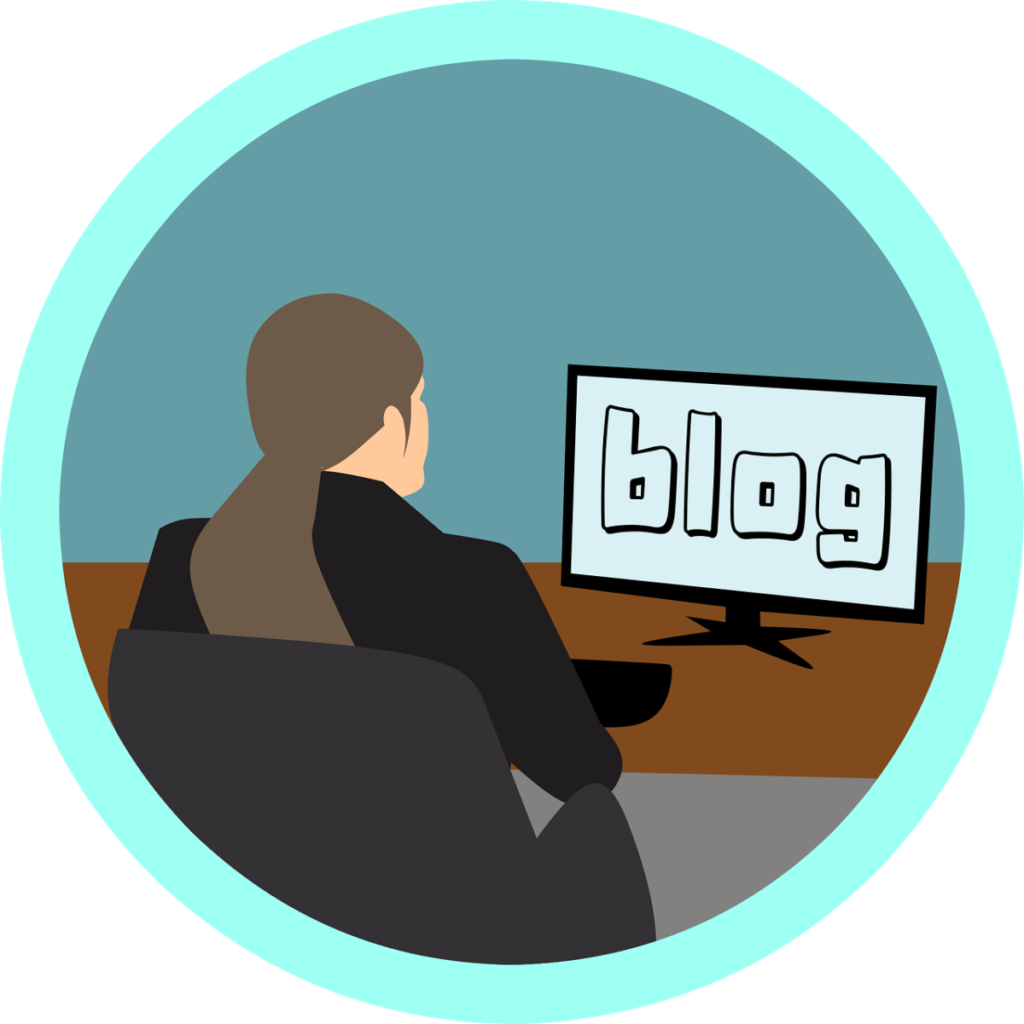
Homework for 3/9:
On OpenLab: Write a blog post (at least 400 words) in which you describe 2 or 3 possible problems/issues that you want to research and write an article on for your Unit 2 project. You’ll narrow it down to just one, but for now you’re brainstorming ideas. Think about things you disagree with or want to change other people’s minds about. Provide a brief context for each problem, and explain why each is important to you and your community. For instance, you can discuss where the problem stems from, who it impacts, why it is important to address now, and/or who you can appeal to so as to help implement change.
Here’s the link to the Padlet of Ideas if you need some help: https://padlet.com/dblain1/jm28gpq4qkblaufg
Title it “Problems – your name”
Category – Problems
Homework for 3/4:
On Perusall: Pick one of these articles to read and annotate (they’re already in Perusall) – it doesn’t matter which one, just whatever catches your interest. What stands out to you? What do you like/dislike about this writer’s style? What are you confused by? What do you want to know more about? How does the writer use research (outside facts, statistics, news, interviews)?
- Vox “The Year We Gave up on Privacy”
- The Atlantic: “I’m Not Black I’m Kanye”
- Science News: “How Coronavirus Stress May Scramble Our Brains”
- The Cut: “Is Marriage Obsolete?”
- Sports Illustrated: “Why I’m Behind the Athletes’ Bill of Rights”
And that’s all you have to do – read and annotate.
Just for the heck of it, here are the links to the things we watched/read today:
- President Obama: https://www.theguardian.com/us-news/video/2019/oct/30/barack-obama-calls-out-politically-woke-social-media-generation-video
- Letter in Harper’s: https://harpers.org/a-letter-on-justice-and-open-debate/
Homework for 3/2:
On OpenLab: Create a new post and address these three things:
- think back on the process of writing this Portrait. What was hard, easy. How many drafts you did, etc. Take us on a quick journey through what you went through to get it written.
- reflect on your experience doing the workshop (good, bad, indifferent) and what you got from it.
- talk about what revisions you’re thinking about making to your essay. Remember that the final revisions aren’t due until the end of the term, but it’s good to have a plan even before you get my comments.
Title: “Portrait Reflection – your name”
Category: Portrait Reflection
If you haven’t posted your draft yet…
- In the Google Drive folder: be sure to post your draft by Tuesday 3/2.
- On OpenLab: write a post that talks about what happened, why you got stuck, where you are now. Also include something like the Reviewer’s Memo that the rest of the class did, either in this post or at the end of your draft.
Title: “Portrait Reflection – your name”
Category: Portrait Reflection
Whee!!! Workshop is up for Thursday, so to get ready for it…
Homework for Thursday 2/25:
- Make your SFD less ‘S’: Do whatever you want to do to make it stronger: revise a little, add images, quote from outside sources, talk to other people and add what they say… THIS DRAFT MUST BE AT LEAST 1000 WORDS! Upload it into the Google Drive, same folder (feel free to delete your first one).
- Add a Reviewer’s Memo to end of the Draft. It’s simply a message of 100-200 words you write to the people who are going to be looking at your draft that addresses these three things:
- This is what I intended to do: Here’s why I wrote it. What I hoped it would do. What I want people to take away from the piece.
- This is how I feel about the project so far: how I think it’s going, what problems I’m having, what I think is working, and what I think I need help with, what I’m proud of, etc.
- Here are other questions/issues I would like the reviewers to look at such as: what do you think is working? What is confusing? Does each paragraph address a single idea, or does it wander all over the place? Have I mentioned or used something from the readings? If this were your essay, what would you do next?

Here’s the link to the food Padlet if you’re hungry:
Note from Feb 18:
Now you know all about frames!
Homework for Tuesday
A BIT OF A DEADLINE CHANGE: Homework due end of day Monday 2/22:
On class Google Drive: Post your SFD to the Google Drive folder for Unit 1 labelled “Portrait of a Word (Drafts)”. Make sure it’s at least 800 words so we can get a good idea of what you’re doing.
A couple of things about Lynda Barry:
Here’s the Lynda Barry “Two Questions piece” http://thegreatcomicbookheroes.blogspot.com/2013/12/lynda-barrys-two-questions.html
And here’s the YouTube of the exercise:
Note from Feb 16:
GREAT WORK today in class — a couple of things:
- If you haven’t looked at all the conversation about “Fuku” in Perusall, go take a look. I think it might give you some more ideas about how to write this essay.
- The Google Docs y’all created today are in the Google Drive in the “Mentor Texts activity” folder. Go see what people said about how Diaz and Abdurraquib put their pieces together (techniques, scenes, etc.).
- If you want to use a word or phrase that’s not from the DC you did the artifact from… drop me a text in Slack and let me know. I’m sure it’ll be fine, but it might be good just to talk through it with me. Now that you know “culture” is a discourse community, and you’ve read two authors writing about a word that’s used in two “cultures,” you might have gotten a great idea… and I love that stuff! Just let me know.
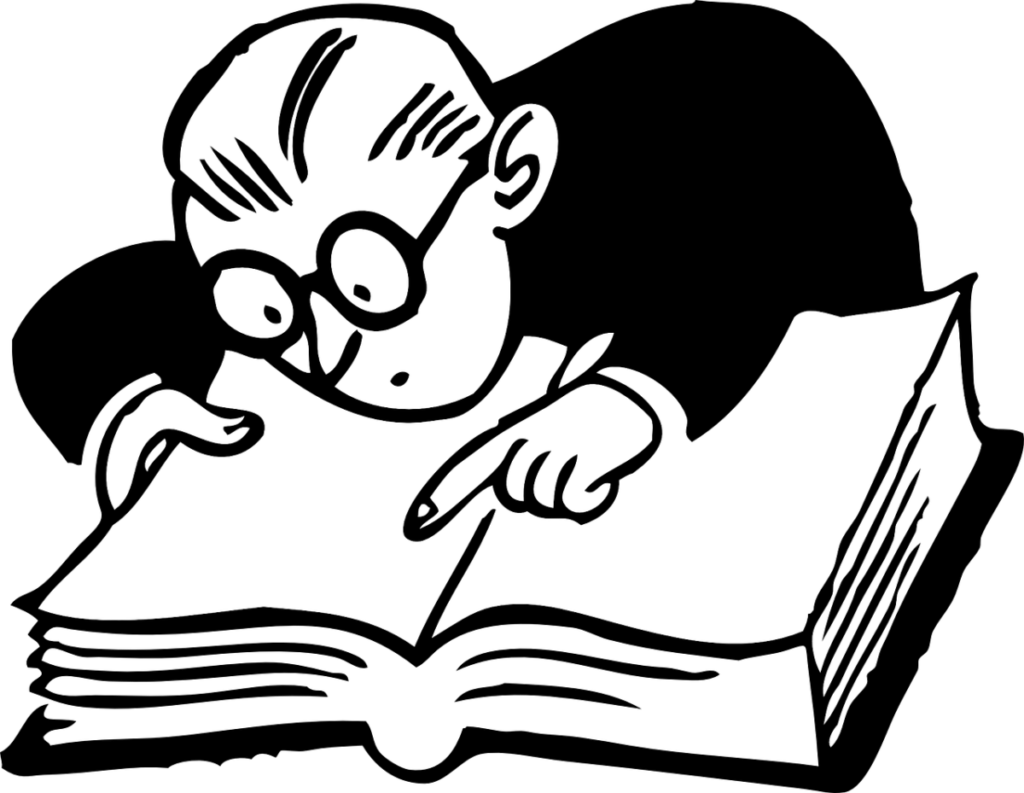
homework for thur 2/18:
On OpenLab: Write a post of 250-300 words or so where you think through what you are going to do, or might do, for the Portrait of a Word. Briefly consider these four areas:
- What word or phrase are you thinking about painting us a portrait of?
- Why did you pick that one? What’s important or meaningful to you about it?
- What do you think you’d like your readers to learn from what you write about it?
- What technique(s) do you think you might be able to borrow from Diaz or Abdurraqib? Why that one/those?
Title: “Words – your name”
Category: Words
QUICK NOTE: The GradeBook for the Introductory Week is available. If you haven’t posted anything here on OpenLab yet (either the Intro or the Names post), your grade will look low. But never fear — once you post one, you’ll get an improved grade and you’ll be added to the Members list on the right side of the site.
Homework for Tuesday Feb 16: it’s the fuku!

ON PERUSALL:
- Read and annotate the first 7 pages of The Brief Wondrous Life of Oscar Wao (this is the prologue, all about the word “fuku.”) Don’t forget to read the footnotes!
- Go to Chats -> General Discussion, and jump into the Conversation labeled “Fuku.” Here’s what to do: Now that you’re read the Junot Diaz piece, go listen to Lin-Manuel Miranda read the same passage. Press “Play Sample” under the picture. https://www.audiobooks.com/audiobook/brief-wondrous-life-of-oscar-wao/280839?refId=38712&gclid=CjwKCAjwmf_4BRABEiwAGhDfSeJg4db_lBaU0UOuJCgQHVQYahM5LgGX75Cq_L57QWye35t_QlZbKBoCo9cQAvD_BwE
- Now start talking about any or all of these questions (start a new conversation if you want to):
- What passage really confused you and why? FYI: The places you have difficulty are where you’re doing your best thinking. The places you struggle are the places PhD students struggle too. Difficulties aren’t walls to stop you but obstacles that you can (and will) overcome!
- What was different for you between reading and hearing the passage?
- Did hearing it make the passage make more or less sense than simply reading it?
- Fuku is clearly important to Diaz’ discourse community. Why? What is the fuku and what does it have to do with the DR… to the United States?
- Be sure to comment on what other people are saying, too, even if that’s the only thing you comment on. Just be sure you have something to say that’s not just “I agree.” The idea is to have a conversation, after all!
Homework for Thursday Feb 11:
HW for Thur 2/11:
ON PADLET: Leave us an artifact from your discourse community, the one you might want to write about for this unit. It can be a picture or a video or whatever!
https://padlet.com/dblain1/apa5qf181evfrl8q
Just for help… here’s the link to the “My Discourse Communities” brainstorm padlet:
https://padlet.com/dblain1/zuroedm7ictfw5wt
AND… The rules for Discourse Communities:
- Goal or goals.
- Specialized language (jargon)
- Ways of communicating (genres)
- “Rules” for joining
- Shared beliefs, values
- Shared activities
- “Stuff” — clothing, music, etc.
For Tuesday, Feb 9:
First, thanks for trying out Perusall. I got the feeling people liked it, so we’re going to keep using it… and expand it a little bit as we go.

Second, if I didn’t answer your question about something on the Syllabus, text me on Slack.
And finally, third — here’s the assignment for next Tuesday. You also might want to go to Course Materials/Units and check out the Unit 1 – Portrait of a Word assignment (there’s a schedule of all the homework and due dates at the very bottom).
Homework for Tu 2/9:
ON PERUSALL: Read and annotate “Understanding Discourse Communities” by Dan Melzer. In Assignments, it says melzer-understanding-discourse-communities. As part of your annotations, tell us what this part a discourse community might play in your own life. We’ll talk about them on Tuesday 2/9.
And absolutely reply to other people if you have an answer or share a confusion or just want to talk.
Here’s the Perusall student help link: https://support.perusall.com/hc/en-us/categories/360002173133-Students
For Thur Feb 4
Homework for 2/4:
- Watch “(un)Learning my Name” by Mohamed Hassan and read Zayn Malik and the Songs that Bring us to Prayer” by Hanif Abdurraqib
- Create a post for OpenLab responding to these two pieces (the video and the article). You can do it in whatever way you want! You can talk about how your name or your language makes you who you are, or gives people “permission” to treat you a certain way even though that’s so wrong! You can talk about how school has made you the writer or thinker or student or professional you’re becoming. You can talk about your family’s influence on your literacy — your education, your goals, your belief in yourself, your attitude toward the world. You can also think through how a group has helped define you. As part of it, you can add images or links to videos… whatever you think will help us get to know you and your experiences better. You can even add a link to a video. Or record an audio file and link to it. Or draw something and upload the image. Whatever you want. Remember: we’re all about composing in the 21st century, so feel free to do what you think would be interesting for us to see/hear/learn about. The idea is to get you thinking about how those issues affect you. How they’ve helped shape who you are and who you’re becoming.
Title it “Names [your name]” Category Names
- Go take a look at other people’s posts and Comment… another way to get to know each other!
Welcome to the class!
If you haven’t watched the little video on Blackboard (and even if you have), here it is again for your pleasure. Below it is information about what to do next, so skip this is you’d like:
What to do now.
That was quick. I really wanted to give everyone a chance to play around with OpenLab — including posting something to the Class Blog — so now’s the time to head for the Course Work/Units tab on the menu, and drop down to select Introductory Week. Take a look (you can print the page by going to the bottom and clicking on Print this Page.
I’m sure you’ll want some help on how to use the new Block Editor to create posts (it’s pretty cool once you figure it out!). So here’s a video to explain that… and if you’ll go to the Help & Resources –> Class Resources page, you’ll find not just this video again but also a handout that you can download to help. Help for using the Block Editor
Again, if you get stuck or frustrated, you can wait until our first class on Tuesday at 10 am. Here’s the Zoom link information again (it’s in the Course Info tab –> Contact Info & Communications)
https://us02web.zoom.us/j/81661822445?pwd=c252enRGWHVHVVY1dlAzMGVGdU80dz09
Meeting ID: 816 6182 2445
Passcode: 602802
One tap mobile
+16465588656,,81661822445#,,,,602802# US (New York) +13126266799,,81661822445#,,,,602802# US (Chicago)
Dial by your location
+1 646 558 8656 US (New York)
+1 312 626 6799 US (Chicago)
And of course, email me DBlain@citytech.cuny.edu, or text me on our Slack channel.



